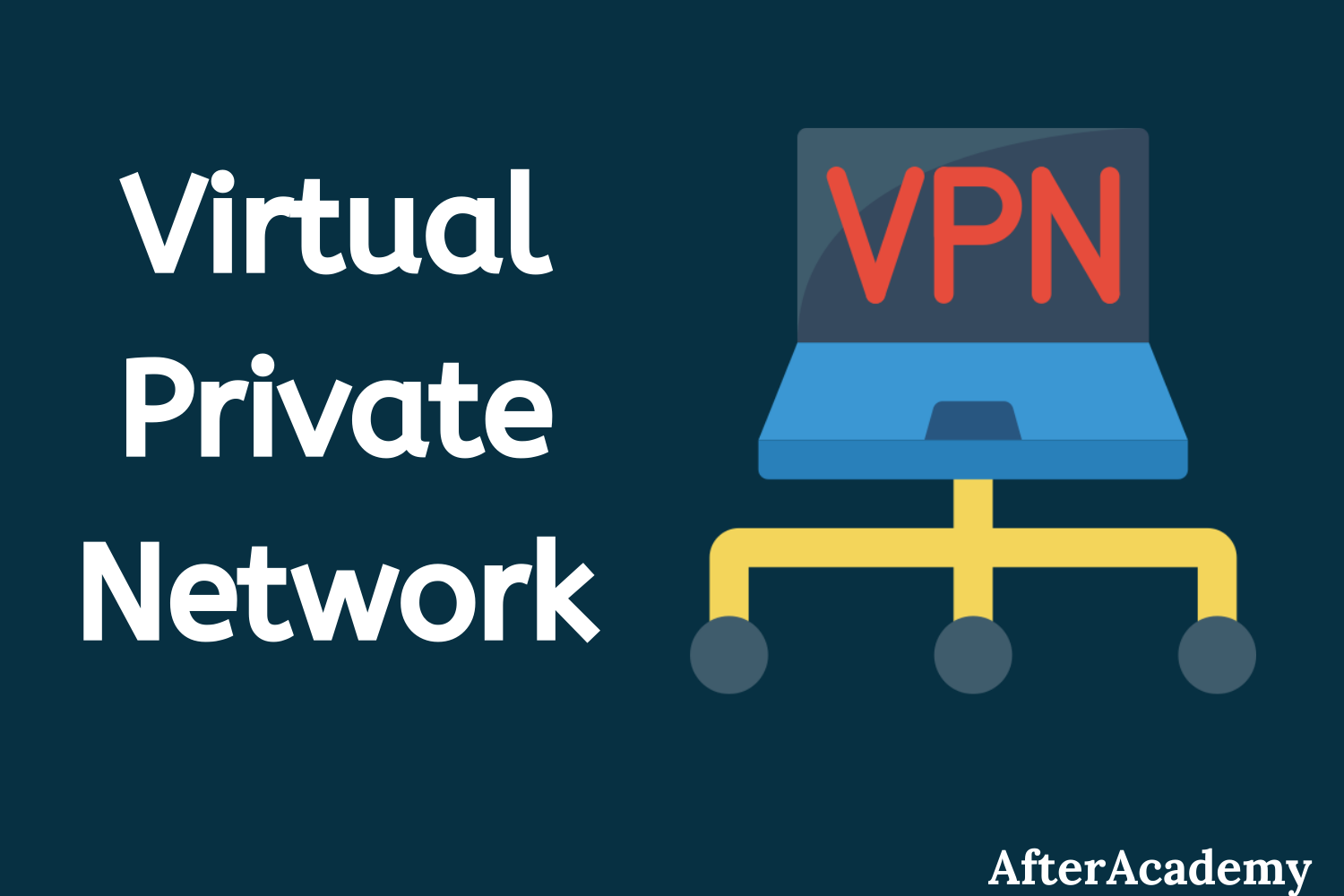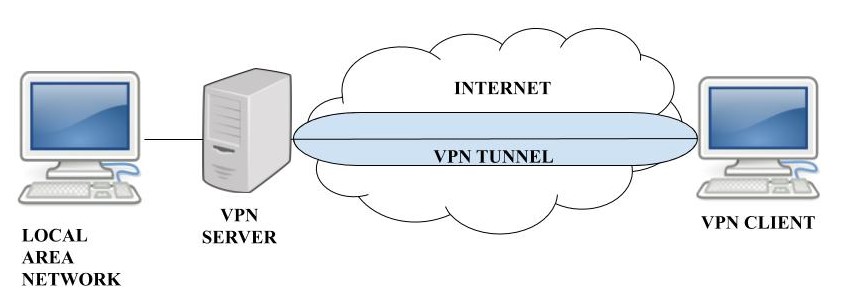What is a VPN? Explain its working
AfterAcademy Tech
•
05 Dec 2019

Have you ever tried to visit a website and end up getting messages like “Your requested URL has been blocked as per the …”. Why does this happen and how can we overcome this? Also, have you ever thought that if your identity is safe while you are using free wifi or a public network? If not that then how can this be achieved? Think 🙂
Yes, you got it right. We can achieve this by using VPN i.e. Virtual Private Network. In this blog, we will learn about the VPN.
The following are the topics that are going to be discussed in this blog:
- What is a Private Network?
- What is a VPN?
- How VPN actually works?
- What are the benefits of using a VPN?
- Disadvantages of VPN
If you want to learn about VPN from video, then you can watch our video on the VPN.
Private Network
A private network is a network which is configured such that the devices outside the private network cannot access the network and they can't communicate with the systems that are present in that private network. This network has restrictions on their access. Such a network is mostly used in business and private organizations because they have confidential information and they don't want to share it outside the organization.
For example, if you are having a fully automated house where every device is connected with each other then that network of your house is your private network and no one else from outside can use your network i.e. only you have the access over that network. But when you are accessing your private network from other places i.e. not from your reach of a private network, then you might encounter some problem. Let's see some of those problems.
Problems
Suppose we have our own private network and we want to access that network over the internet from a remote location and send some sensitive information. How can we do that? You can access the data or your private network using the internet but there is one problem with this approach. The information can be hacked by hackers even if we use some encryption techniques. Also, your ISP(Internet Service Provider) will have all the information about this data or information transfer.
Another problem is that whenever we are using internet service by using some ISP(Internet Service Provider) then the ISP can have a record of all the activities that we do over internet i.e. you browsing history and all that sensitive information can be accessed by the ISP. Why share your information with your ISP?
Both these problems can be solved with the help of a VPN i.e. Virtual Private Network. VPN servers create a secure network between the remote client and our private network and we can easily send the information.
What is a VPN?
Virtual Private Network or simply VPN is a service in which we extend our local network so that we can securely access it from any remote location over the internet. When we make a request using a VPN, then our internet service providers redirects us to the VPN server and now all the websites which we access are done through these servers. Here, our ISP will not know that what are all the sites which we are accessing, it thinks that we have made a connection request only for the VPN server and our identity will be shielded. So, the online identity of the individual can also be easily be hidden from ISPs.
How does VPN actually work?
VPN is used when we have to send messages from a remote computer to any local network over the internet. Our message has header and contents according to which it is routed to the destination. But here we have to send the message over the internet and the header of the message contains a local address of the destination. So, when we send the message it is received by the VPN server. This server wraps the message and gives the header to the packet which is used for routing it over the internet. It also encrypts the message and makes a secure connection. This connection from VPN server to the VPN client appears as a tunnel and the packet is sent through this tunnel. This connection is made using the tunnelling protocol. So, VPN uses an additional protocol along with the TCP/IP protocol for tunnelling. Finally, the VPN client at the other end decrypts the data and deliver it to the destination address.

Benefits of using a VPN?
So, it’s time to answer the question which was asked in the starting of the blog. Why do we get messages like “Your requested URL… ”? This may happen due to many reasons:
- Firstly, the site which you want to access is restricted by the government like torrents etc.
- Secondly, the site which you want to access is not available for access in your region. All these problems can be resolved by using a VPN.
- We can securely connect from a remote system to a local network.
- We can hide our online identity.
- We can have access to all the sites irrespective of our location.
The network connectivity becomes slow when we use a VPN but that is overshadowed by the benefits. Let's see some more disadvantages of using VPN.
Disadvantages of using VPN
VPN has some disadvantages too. The following are some of the disadvantages of a VPN:
- Internet connectivity becomes slow. This is because VPN works by connecting the network first to a private server and then to the website. So some VPN might take a longer time to connect to the VPN server which may result in longer loading time.
- The VPN service provider might monitor our activity and use our data and sell it to the third parties.
- As the VPN provides encryption for our data we don’t know how strong is the encryption and it varies from one service provider to another. So, it can be a problem.
That’s it for this blog. Hope you learned something new today.
Do share this blog with your friends to spread the knowledge. Visit our YouTube channel for more content. You can read more blogs from here.
Keep Learning 🙂
Team AfterAcademy!
Written by AfterAcademy Tech
Share this article and spread the knowledge
Read Similar Articles
AfterAcademy Tech
What is FTP and how does an FTP work?
In this blog, we will learn what is an FTP protocol, how does it works, what are various modes in which it works, what are the advantages and disadvantages of using it.

AfterAcademy Tech
What is the OSI model and how it works?
In this blog, we will mainly learn about the OSI model and its working in detail. We'll focus on the features and working of each layer of the OSI model.

AfterAcademy Tech
What is DHCP and how does it work?
In this blog, we will learn what is DHCP, what are various entities related to DHCP and how does it work. We will also discuss how IP configurations are dynamically done.

AfterAcademy Tech
What is the TCP/IP model and how it works?
In this blog, we will mainly learn about the TCP/IP model and its working in detail. We'll focus on the features and working of each layer of the TCP/IP model.
